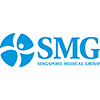Job Summary:
a. Nursing Leadership, Management, and Direction:
To provide effective leadership, management, and direction to ensure the daily operations of the unit run smoothly. This involves setting and maintaining high-quality standards for patient care. Implement evidence-based practices, ensure compliance with policies and procedures, and foster a culture of continuous improvement. Additionally, focus on staff development by identifying training needs, facilitating educational opportunities, and promoting professional growth. Efficient resource management, including staffing levels and equipment allocation, is essential for optimal unit functionality.
b. Overall Accountability for Patient Care:
Take overall accountability for the standard of patient care by overseeing and assessing nursing practices. Ensure that there is a suitable match between the competence of nursing staff and the diverse needs of patients. Address any competency gaps through targeted training and development initiatives. Pay close attention to occupational health and safety measures for the staff, creating a work environment that prioritizes the well-being of healthcare professionals. Implement and monitor clinical risk management strategies to mitigate potential issues and enhance patient safety.
c. Representation of the Organization:
Serve as the face of the organization when interacting with key stakeholders, including doctors, patients, their families, and friends. Establish and maintain effective communication channels to address concerns, provide information, and foster positive relationships. Demonstrate a commitment to patient-centred care and customer satisfaction. Act as a liaison between the nursing staff and other healthcare professionals, ensuring a collaborative and cohesive approach to patient care.
Key accountabilities:
a. Setting Unit Goals and Objectives:
Collaborate with the clinical team to establish unit goals and objectives that align with the broader organizational mission and strategic initiatives. Ensure that these goals are specific, measurable, achievable, relevant, and time-bound (SMART). Foster a team-oriented approach to goal-setting, considering input from all members of the clinical team to promote a sense of ownership and commitment.
b. Staff Development and Career Progression:
Take responsibility for the induction process of new staff, conducting competency assessments, and identifying individual learning needs. Develop comprehensive plans for nurses' career progression, providing opportunities for skill development, training, and professional growth. Regularly assess staff competencies and address any gaps through targeted educational programs, mentoring, and coaching.
c. Quality Evaluation of Nursing Care:
Continuously evaluate the quality and appropriateness of nursing care provided on the unit. Implement a robust quality assurance program, incorporating regular audits, performance reviews, and feedback mechanisms. Use data-driven insights to identify areas for improvement and implement changes in nursing care delivery. Foster a culture of continuous improvement by encouraging staff involvement in quality improvement initiatives.
d. Occurrence Reports and Risk Management:
Facilitate reviews of occurrence reports to identify trends, root causes, and opportunities for improvement. Collaborate with the clinical team to develop and implement action plans aimed at preventing the recurrence of adverse events. Emphasize a proactive approach to risk management, focusing on the identification and mitigation of potential risks before they escalate.
e. Budget Monitoring and Expenditure Control:
Monitor the unit's budget and expenditure to ensure efficient and effective use of consumables. Work closely with the finance department to identify cost-saving opportunities without compromising the quality of patient care. Implement measures to control expenses, such as optimizing resource utilization, negotiating vendor contracts, and exploring alternatives for cost-effective solutions.
f. Scheduling for Optimal Skill Mix:
Plan unit schedules to ensure the efficient use of an adequate skill mix in proportion to patient acuity and census. Consider the expertise and competencies of the nursing staff when assigning responsibilities. Strive for a balanced and flexible staffing approach that can adapt to fluctuations in patient volume and acuity. Regularly review and adjust staffing plans based on performance metrics and feedback from the clinical team.
Qualifications & Experience:
a. Diploma in Nursing or equivalent and recognised by the Singapore Nursing Board.
b. Registered with Singapore Nursing Board.
c. Post Basic and Degree in Nursing and Advanced Diploma in Peri-operative
d. Min 8 years of work experience in Operating Theatre or Day Surgery setting, performed scrubbing, circulating and recovery duties. Experienced in licensing renewals





